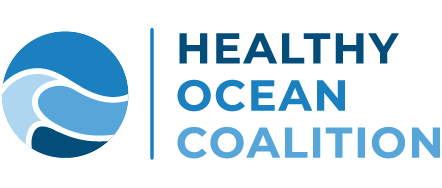America the Beautiful: A Plan to Protect Our Ocean
Whales have the power to ignite curiosity about the natural world and inspire people to protect the ocean. As a guide on whale watching tours based out of Massachusetts’s Plymouth Harbor, I see first-hand the profound impacts spending time with wildlife on the water has on fostering an ethic of stewardship in people.
Author Lindsay Hirt is a biologist and science educator in Plymouth, Massachusetts.
From the highest point of the ship, I excitedly share the story of each whale we see on the cruise. When Ventisca, a humpback whale with a white speckled tail, surfaces by the boat, I explain that her name means “blizzard” in Spanish. People marvel at her snowy markings as she gracefully glides nearby. This moment of connection ensures that passengers, especially kids, will remember her long after the tour is over.
Another whale approaches us with deep, angry scars across her back. I explain that Owl, named after the two black dots on her tail that resemble eyes, was injured by a boat many years ago. Our community watched her wounds heal over time and celebrated when she returned from her annual migration with a calf. People relate to this whale as more than an animal. Like so many others, she is a parent with a personality and a life full of challenges.
Stories like these are valuable teaching moments, offering space for people to consider what they can do to protect these spectacular animals and their ocean habitat. We are in dire need of moments that establish connections to the wild and empower people to take action because the ocean is in trouble. After decades of absorbing the vast majority of excess heat and carbon dioxide from climate change, the ocean is now warmer, more acidic, and less habitable for fish and wildlife. In addition, it is nearly impossible to find a place in the ocean that has not been touched by human activities, pollution, or extraction.
The Biden Administration’s “America the Beautiful” initiative aims to protect at least 30 percent of our ocean and lands by 2030. I am encouraged that the Administration has highlighted the importance of protecting the ocean as well as land in this initiative. I am even more encouraged that the initiative is making it a priority to give “every person in America — present and future” the chance to experience nature in order to build on our country’s “proud and collaborative stewardship traditions.” The more people are connected to the ocean, the more people will feel empowered to take actions to protect it.
The Administration is collecting public input around this initiative — and we must let them know that we wholeheartedly support designating at least 30 percent of our ocean as fully or highly protected marine protected areas, increasing the number of people connecting with nature, and fostering the conservation ethic needed to take care of our ocean far into the future.

